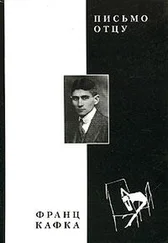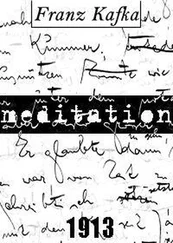Франц Кафка - In the Penal Colony
Здесь есть возможность читать онлайн «Франц Кафка - In the Penal Colony» весь текст электронной книги совершенно бесплатно (целиком полную версию без сокращений). В некоторых случаях можно слушать аудио, скачать через торрент в формате fb2 и присутствует краткое содержание. Год выпуска: 2015, Издательство: epubBooks Classics, Жанр: Классическая проза, на английском языке. Описание произведения, (предисловие) а так же отзывы посетителей доступны на портале библиотеки ЛибКат.
- Название:In the Penal Colony
- Автор:
- Издательство:epubBooks Classics
- Жанр:
- Год:2015
- ISBN:нет данных
- Рейтинг книги:5 / 5. Голосов: 1
-
Избранное:Добавить в избранное
- Отзывы:
-
Ваша оценка:
- 100
- 1
- 2
- 3
- 4
- 5
In the Penal Colony: краткое содержание, описание и аннотация
Предлагаем к чтению аннотацию, описание, краткое содержание или предисловие (зависит от того, что написал сам автор книги «In the Penal Colony»). Если вы не нашли необходимую информацию о книге — напишите в комментариях, мы постараемся отыскать её.
In the Penal Colony — читать онлайн бесплатно полную книгу (весь текст) целиком
Ниже представлен текст книги, разбитый по страницам. Система сохранения места последней прочитанной страницы, позволяет с удобством читать онлайн бесплатно книгу «In the Penal Colony», без необходимости каждый раз заново искать на чём Вы остановились. Поставьте закладку, и сможете в любой момент перейти на страницу, на которой закончили чтение.
Интервал:
Закладка:
The Officer had obviously forgotten who was standing in front of him. He had put his arm around the Traveler and laid his head on his shoulder. The Traveler was extremely embarrassed. Impatiently he looked away over the Officer's head. The Soldier had ended his task of cleaning and had just shaken some rice pudding into the bowl from a tin. No sooner had the Condemned Man, who seemed to have fully recovered already, noticed this than his tongue began to lick at the pudding. The Soldier kept pushing him away, for the pudding was probably meant for a later time, but in any case it was not proper for the Soldier to reach in and grab some food with his dirty hands and eat it in front of the famished Condemned Man.
The Officer quickly collected himself. "I didn't want to upset you in any way," he said. "I know it is impossible to make someone understand those days now. Besides, the machine still works and operates on its own. It operates on its own even when it is standing alone in this valley. And at the end, the body still keeps falling in that incredibly soft flight into the pit, even if hundreds of people are not gathered like flies around the hole the way they used to be. Back then we had to erect a strong railing around the pit. It was pulled out long ago."
The Traveler wanted to turn his face away from the Officer and looked aimlessly around him. The Officer thought he was looking at the wasteland of the valley. So he grabbed his hands, turned him around in order to catch his gaze, and asked, "Do you see the shame of it?"
But the Traveler said nothing. The Officer left him alone for a while. With his legs apart and his hands on his hips, the Officer stood still and looked at the ground. Then he smiled at the Traveler cheerfully and said, "Yesterday I was nearby when the Commandant invited you. I heard the invitation. I know the Commandant. I understood right away what he intended with his invitation. Although his power might be sufficiently great to take action against me, he doesn't yet dare to. But my guess is that with you he is exposing me to the judgment of a respected foreigner. He calculates things with care. You are now in your second day on the island. You didn't know the Old Commandant and his way of thinking. You are trapped in a European way of seeing things. Perhaps you are fundamentally opposed to the death penalty in general and to this kind of mechanical style of execution in particular. Moreover, you see how the execution is a sad procedure, without any public participation, using a partially damaged machine. Now, if we take all this together (so the Commandant thinks) surely one could easily imagine that that you would not consider my procedure proper? And if you didn't consider it right, you wouldn't keep quiet about it—I'm still speaking the mind of the Commandant—for you no doubt have faith that your tried–and–true convictions are correct. It's true that you have seen many peculiar things among many peoples and have learned to respect them. Thus, you will probably not speak out against the procedure with your full power, as you would perhaps in your own homeland. But the Commandant doesn't really need that. A casual word, merely a careless remark, is enough. It doesn't have to match your convictions at all, so long as it corresponds to his wishes. I'm certain he will use all his shrewdness to interrogate you. And his women will sit around in a circle and perk up their ears. You will say something like, ‘Among us the judicial procedures are different,' or ‘With us the accused is questioned before the verdict,' or ‘We had torture only in the Middle Ages.' For you these observations appear as correct as they are self–evident—innocent remarks which do not impugn my procedure. But how will the Commandant take them? I see him, our excellent Commandant—the way he immediately pushes his stool aside and hurries out to the balcony—I see his women, how they stream after him. I hear his voice—the women call it a thunder voice. And now he's speaking: ‘A great Western explorer who has been commissioned to inspect judicial procedures in all countries has just said that our process based on old customs is inhuman. After the verdict of such a personality it is, of course, no longer possible for me to tolerate this procedure. So from this day on I am ordering … and so forth.' You want to intervene—you didn't say what he is reporting—you didn't call my procedure inhuman; by contrast, in keeping with your deep insight, you consider it most humane and most worthy of human beings. You also admire this machinery. But it is too late. You don't even go onto the balcony, which is already filled with women. You want to attract attention. You want to cry out. But a lady's hand is covering your mouth, and I and the Old Commandant's work are lost."
The Traveler had to suppress a smile. So the work which he had considered so difficult was easy. He said evasively, "You're exaggerating my influence. The Commandant has read my letters of recommendation. He knows that I am no expert in judicial processes. If I were to express an opinion, it would be that of a lay person, no more significant than the opinion of anyone else, and in any case far less significant than the opinion of the Commandant, who, as I understand it, has very extensive powers in this penal colony. If his views of this procedure are as definite as you think they are, then I'm afraid the time has come for this procedure to end, without any need for my humble opinion."
Did the Officer understand by now? No, he did not yet get it. He shook his head vigorously, briefly looked back at the Condemned Man and the Soldier, who both flinched and stopped eating the rice, went up really close up to the Traveler, without looking into his face, but gazing at parts of his jacket, and said more gently than before: "You don't know the Commandant. Where he and all of us are concerned you are—forgive the expression—to a certain extent innocent. Your influence, believe me, cannot be overestimated. In fact, I was blissfully happy when I heard that you were to be present at the execution by yourself. This order of the Commandant was aimed at me, but now I'll turn it to my advantage. Without being distracted by false insinuations and disparaging looks—which could not have been avoided with a greater number of participants at the execution—you have listened to my explanation, looked at the machine, and are now about to view the execution. Your verdict is no doubt already fixed. If some small uncertainties remain, witnessing the execution will remove them. And now I'm asking you—help me with the Commandant!"
The Traveler did not let him go on talking. "How can I do that," he cried. "It's totally impossible. I can help you as little as I can harm you."
"You could do it," said the Officer. With some apprehension the Traveler observed that the Officer was clenching his fists. "You could do it," repeated the Officer, even more emphatically. "I have a plan which must succeed. You think your influence is insufficient. I know it will be enough. But assuming you're right, doesn't saving this whole procedure require one to try even those methods which may be inadequate? So listen to my plan. To carry it out, it's necessary, above all, for you to keep as quiet as possible today in the colony about your verdict on this procedure. Unless someone asks you directly, you should not express any view whatsoever. But what you do say must be short and vague. People should notice that it's difficult for you to speak about the subject, that you feel bitter, that, if you were to speak openly, you'd have to burst out cursing on the spot. I'm not asking you to lie, not at all. You should only give brief answers—something like, ‘Yes, I've seen the execution' or ‘Yes, I've heard the full explanation.' That's all—nothing further. For that will be enough of an indication for people to observe in you a certain bitterness, even if that's not what the Commandant will think. Naturally, he will completely misunderstand the issue and interpret it in his own way. My plan is based on that. Tomorrow a large meeting of all the higher administrative officials takes place at headquarters under the chairmanship of the Commandant. He, of course, understands how to turn such a meeting into a spectacle. A gallery has been built, which is always full of spectators. I'm compelled to take part in the discussions, though they fill me with disgust. In any case, you will certainly be invited to the meeting. If you follow my plan today and behave accordingly, the invitation will become an emphatic request. But should you for some inexplicable reason still not be invited, you must make sure you request an invitation. Then you'll receive one without question. Now, tomorrow you are sitting with the women in the commandant's box. With frequent upward glances he reassures himself that you are there. After various trivial and ridiculous agenda items designed for the spectators—mostly harbour construction—always harbour construction—the judicial process comes up for discussion. If it's not raised by the Commandant himself or does not occur soon enough, I'll make sure that it comes up. I'll stand up and report on today's execution. Really briefly—just the report. Such a report is not really customary; however, I'll do it, nonetheless. The Commandant thanks me, as always, with a friendly smile. And now he cannot restrain himself. He seizes this excellent opportunity. ‘The report of the execution,' he'll say, or something like that, ‘has just been given. I would like to add to this report only the fact that this particular execution was attended by the great explorer whose visit confers such extraordinary honour on our colony, as you all know. Even the significance of our meeting today has been increased by his presence. Should we not now ask this great explorer for his appraisal of the execution based on old customs and of the process which preceded it?' Of course, there is the noise of applause everywhere, universal agreement. And I'm louder than anyone. The Commandant bows before you and says, ‘Then in everyone's name, I'm putting the question to you.' And now you step up to the railing. Place your hands where everyone can see them. Otherwise the ladies will grab them and play with your fingers. And now finally come your remarks. I don't know how I'll bear the tension up to then. In your speech you mustn't hold back. Let truth resound. Lean over the railing and shout it out—yes, yes, roar your opinion at the Commandant, your unshakeable opinion. But perhaps you don't want to do that. It doesn't suit your character. Perhaps in your country people behave differently in such situations. That's all right. That's perfectly satisfactory. Don't stand up at all. Just say a couple of words. Whisper them so that only the officials underneath you can just hear them. That's enough. You don't even have to say anything at all about the lack of attendance at the execution or about the squeaky wheel, the torn strap, the disgusting felt. No. I'll take over all further details, and, believe me, if my speech doesn't chase him out of the room, it will force him to his knees, so he'll have to admit it: ‘Old Commandant, I bow down before you.' That's my plan. Do you want to help me carry it out? But, of course, you want to. More than that—you have to."
Читать дальшеИнтервал:
Закладка:
Похожие книги на «In the Penal Colony»
Представляем Вашему вниманию похожие книги на «In the Penal Colony» списком для выбора. Мы отобрали схожую по названию и смыслу литературу в надежде предоставить читателям больше вариантов отыскать новые, интересные, ещё непрочитанные произведения.
Обсуждение, отзывы о книге «In the Penal Colony» и просто собственные мнения читателей. Оставьте ваши комментарии, напишите, что Вы думаете о произведении, его смысле или главных героях. Укажите что конкретно понравилось, а что нет, и почему Вы так считаете.












